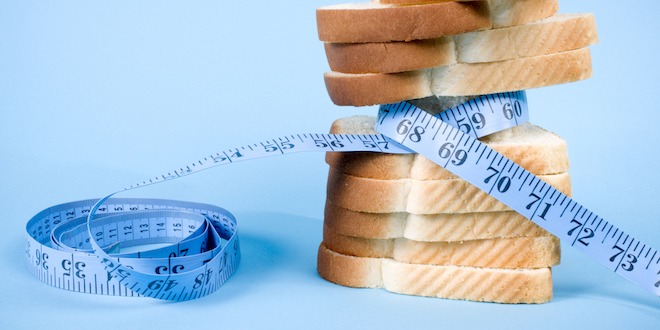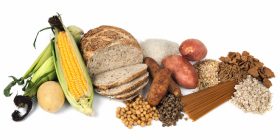What is a very low carb diet?
A very low carb diet is one that strictly limits the intake of carbohydrate-containing foods. The three main types of carbohydrates found in foods are starches, sugars and fibre.
According to the Diabetes Canada clinical practice guidelines, carbohydrates should comprise between 45% and 60% of the total nutritional intake per day for people with diabetes (protein intake should be 15% to 20%, and fat intake should be 20% to 35%). This is a recommendation only, and some people may opt for a low carb diet, limiting their carbohydrate intake even further.
Benefits for people with diabetes
Many people with diabetes follow a low carb diet because it can help improve their diabetes control and also help them lose weight (if needed). A couple of studies support this theory.
In one study published this year, 316 people who followed a very low carb diet – 5% of total daily calories – reduced their average A1C to 5.7%. (The A1C target for most people with diabetes is 7% or lower). They also had low triglyceride levels and high HDL cholesterol levels (the “good” cholesterol).
Another study conducted in 2015 showed that people who had a very low carbohydrate diet – 14% of total daily calories – lowered their A1C and fasting blood sugar levels. They also had lower LDL cholesterol levels (the “bad” cholesterol).
Because carbohydrates are broken down into glucose, an increase in blood sugar levels can occur after a meal, depending on how much carb you have consumed. So, by reducing carbohydrate intake, you can help to reduce blood sugar spikes after meals.
Low carbohydrate diets have been found to be successful in aiding weight loss. For people who take insulin to manage their diabetes, a reduction in carbohydrates means that you don’t need to produce – or inject – as much insulin. As insulin helps to store fat, less circulating insulin helps prevent, reduce or reverse weight gain.
Also, by restricting carbohydrate intake, people often lower their calorie intake at the same time by eating less calorically dense foods, or by eating more protein-containing foods, which can make you feel fuller so you are less likely to overeat or snack.
Potential harms for people with diabetes
While a low carb diet may seem like an ideal way to lose weight and better manage your diabetes, there are short-term effects of suddenly and drastically cutting carbs from your diet, which include:
- Headache
- Bad breath
- Weakness
- Muscle cramps
- Fatigue
- Skin rash
- Constipation or diarrhea
A very low carb diet can lower your blood sugar; however, this effect can actually go too far and might result in dangerous blood sugar lows (hypoglycemia). Learn more about hypoglycemia here.
As well, because consuming a low carb diet mean that you’re increasing your protein intake; this can put a strain on your kidneys. If you have kidney problems, eating too much protein could worsen your kidney function.
Types of low carb diets
There are a number of popular low carb diets, including:
- Atkins diet (low carb, low glycemic index)
- Dukan diet (high protein, low fat, low carb)
- Ketogenic diet (high fat, moderate protein, low carb)
- South Beach diet (low carb, low glycemic index, unsaturated fats, lean protein)
Foods to eat and foods to avoid on a VERY LOW CARB diet
| TO EAT: lower-carbohydrate foods | TO AVOID: higher-carbohydrate foods |
| · Non-starchy vegetables, such as lettuce, cucumbers, broccoli and Brussel sprouts | · Starchy vegetables, such as potatoes, peas and corn |
| · Tart fruits, such as strawberries, cranberries, raspberries and blackberries | · Sweeter fruits, such as pineapple, mangoes, watermelon and pears |
| · Proteins, such as meat, seafood and tofu | · Dried beans and legumes, such as lentils, and pinto and kidney beans |
| · Eggs | · Milk and yogurt |
| · Nuts and seeds | · Grains, such as rice, oatmeal, bread, cereal, pasta and crackers |
| · Hard cheeses, such as cheddar, feta, Swiss, parmesan and asiago | · Sweet treats and snack foods (such as soda, juice drinks, cake, cookies, candy and chips) |
Reducing your carbohydrate intake has many health benefits, including blood sugar control and weight loss. However, it can cause episodes of hypoglycemia (low blood sugar), has the potential to worsen your kidney function, and can cause side effects such as bad breath and fatigue. If you’re considering a low carb diet, talk to your healthcare team first, especially if you take insulin or a sulphonylurea medication to manage your diabetes.
 Diabetes Care Community Learn, connect and care
Diabetes Care Community Learn, connect and care





